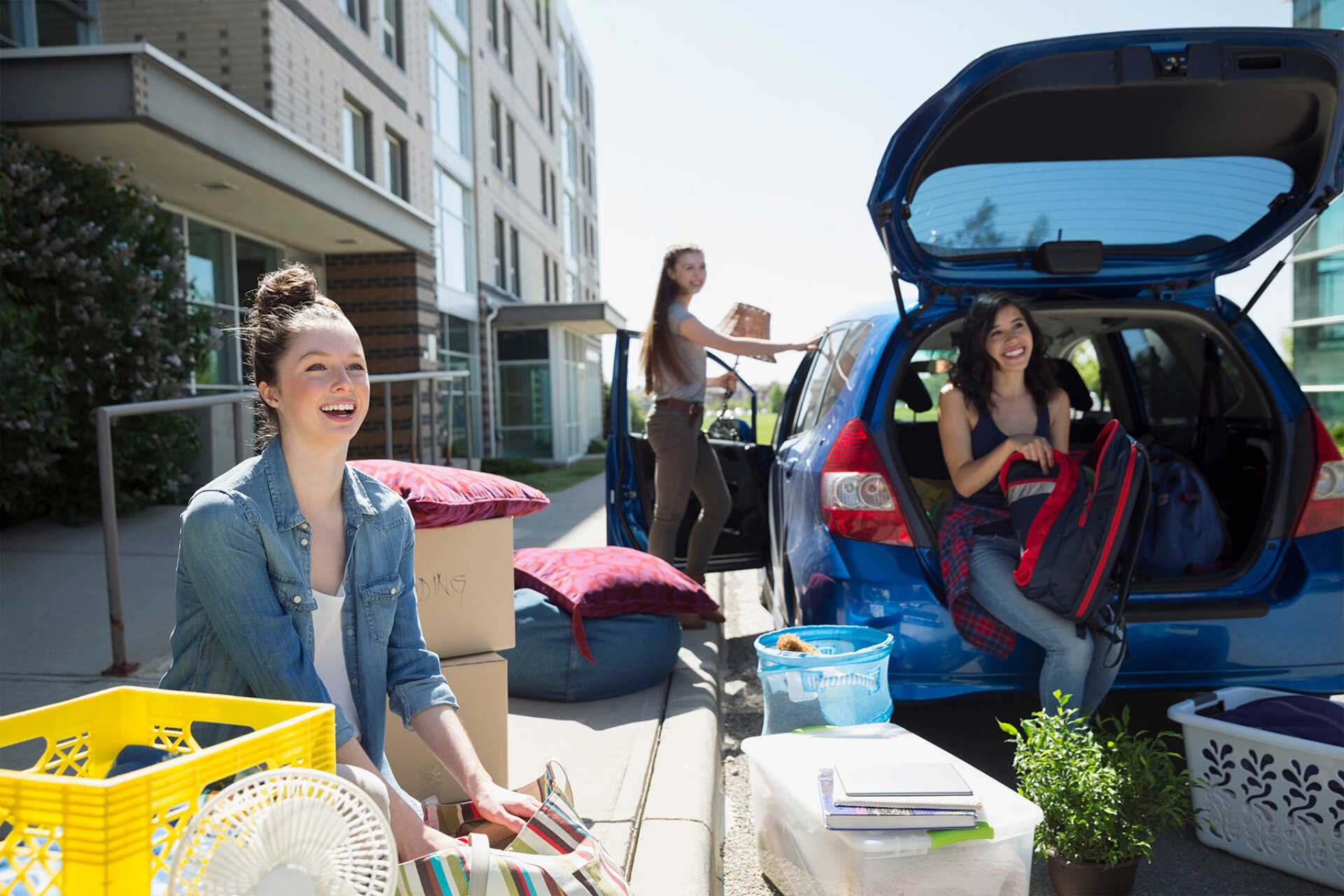Living in university accommodation

Renting a student room is a big decision. We can’t promise perfect housemates or the ideal spot, but we can help you pick the right property and reliable landlords or agents.
Securing off-campus student housing
This page guides you through each stage of securing off-campus student housing. Start at the beginning or jump ahead to the info you need.
1. Looking for a property
Find the right housemates and property. Check landlord accreditation and prepare references early.
2. Moving in
Complete your inventory, set up utilities, and apply for Council Tax exemption if you're eligible.
3. During your tenancy
Respect your neighbours, agree house rules, budget wisely, and report issues clearly and promptly..
4. Leaving your tenancy
Check the inventory, pay bills, clean thoroughly, redirect mail, and update your address.
1. Looking for a property
Finding the right property can feel overwhelming, but don’t rush. Take time to choose suitable housemates, consider the location, and ensure the property meets your needs.
Choosing housemates
If you're new to the area, stay in temporary accommodation while you explore and view properties.
When picking housemates, look for people with similar lifestyles and habits—cleanliness, noise, study routines, and social preferences all matter. Spend time together first to make sure you get along and feel comfortable sharing a home.
Accreditation schemes
When searching for accommodation, always check for local accreditation schemes. These indicate that the landlord or letting agent has agreed to meet key legal requirements and demonstrate a greater commitment to your safety, health, and wellbeing.
- Student Tenant – A popular platform where many student landlords in Canterbury and Medway advertise their properties.
- Medway Accreditation Scheme – Part of the wider London Landlord Accreditation Scheme (LLAS), ensuring landlords meet recognised standards.
- Canterbury Studentpad – Works in partnership with Kent Students' Union and trusted local landlords to list student-friendly accommodation.
References for renting
Landlords may ask for a reference when you rent off-campus. The University doesn’t provide tenant references, but you can use:
- A copy of your current accommodation agreement (available via your MyAccommodation Portal)
- A statement of your University student account showing payment history (request from the Student Fee Collection team, Registry building - email studentfeecollections@kent.ac.uk or call +44 (0)1227 824242)
Housing Hand – guarantor support
If you don’t have a UK-based guarantor, you can apply to Housing Hand, the University’s partner service for UK, EU, and international students.
- Fee: 5% of annual rent (if paid upfront) or 5.5% (monthly), minimum £295
- Apply via the Housing Hand website and mention you’re a University of Kent student.
Estranged and care-experienced students
Extra tenancy support is available on our support pages for estranged and care-experienced students.



2. Moving in
You've found your perfect property and you're ready to move in, but there are still a few important steps to take before you settle in and throughout your tenancy.
Inventory check
An inventory lists all items in your property and their condition. Check it carefully when you move in and note any existing damage (e.g. stains, marks, or tears). Sign and return it to your landlord or agent to avoid being charged for damage you didn’t cause.
Setting up bills and utilities
You may move into a property where bills and utilities are included in your rent, making it easier to plan your budget each month. If your bills aren’t included, you'll need to contact the utility companies when you move in and provide meter readings on that day.
The main utilities you'll need to plan for are:
- Gas
- Electricity
- Telephone and internet
- TV licence
- Water
Council tax
Eligible students are exempt from Council Tax between their course start and end dates. To be granted exemption you will need to supply your council with certified evidence of your student status which can be obtained from the University. If your tenancy agreement starts or ends after these dates you will be liable for Council Tax during that period.
3. During your tenancy
If you’re living in private accommodation, make an effort to integrate into the local community, manage your budget wisely, and maintain clear communication with your landlord or letting agent.
Being a good neighbour
Be friendly and respectful to local residents who live there year-round. Say hi, get to know your neighbours, and keep noise down when hosting friends. You’re representing both the student community and the University.
Living with housemates
Living with others is great when everyone’s on the same page. Agree on rent, bills, cleaning, guests, and quiet times early. Communicate openly, respect each other’s space and routines, and be mindful of how your actions affect others.
Budgeting
Living on a budget can be tough, so plan for rent, bills, and daily costs. The Student Advice Service offers budgeting help and hardship funds. For money tips, check out the Money Saving Expert or Blackbullion.
Living safely
Your landlord is legally responsible for providing a safe place to live. This includes maintaining the gas supply and appliances, installing smoke alarms, ensuring electrics are safe, and keeping water systems in good condition.
Staying informed
Report faults or maintenance issues quickly to keep your home safe and prevent bigger problems. Communicate clearly with your landlord or agent, and use email to keep a written record of any conversations or agreements.


Kent Students' Union Advice Service
For independent support with off-campus housing, contact Kent Union’s Advice Service. Whether you're searching for accommodation or already living off campus, they offer helpful resources online and can assist via email, phone, or in person during office hours.
Still deciding where to live?
Both on-campus and off-campus living have their advantages, but choosing to live on campus comes with some added benefits - like free gym membership, all-inclusive utility bills, and 24/7 campus security for peace of mind.
Want to explore what on-campus life has to offer?
Check out the blog below to discover all the perks that come with living where you study.

















